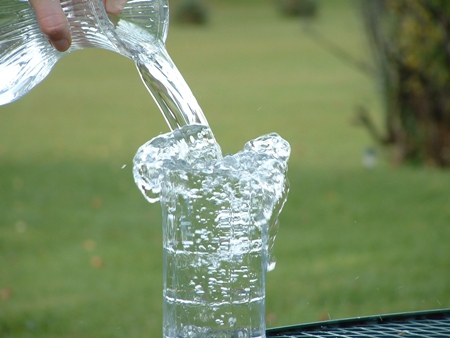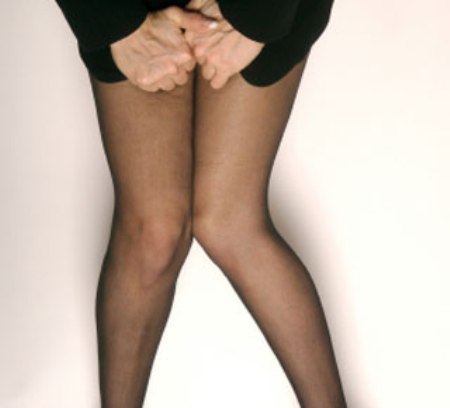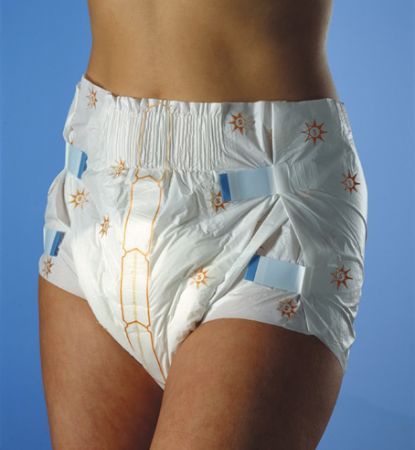
Many myths associated with female incontinence have come into existence due to the embarrassment it brings. Mentioned ahead is a list of some of the popular myths and the facts behind them.
Avoiding liquids is the best way to prevent incontinence.
This is the most popular myth related with incontinence. No matter how much logical this suggestion appears to be, the fact is that it will only increase your problems. In fact, one of the most effective way of improving bladder control and reducing odor is drinking plenty of water throughout the day in small doses. However, there are certain drinks which you must avoid in order to prevent incontinence. The intake of caffeine and carbonated beverages along with citrus juices must be reduced as they contribute to incontinence.
Natural therapies are not very effective.
Natural therapies have not attracted a lot of attention, but that does not mean that they are not effective. Women having incontinence often believe that surgery and medications are perhaps the only option available to them, but natural therapies have proven to be equally effective. Studies have shown that magnesium and vitamin D are very effective in preventing and improving incontinence, both of which can be supplied either through food or dietary supplements. Kegel exercise and biofeedback help in the training and strengthening of the muscles around the bladder. Some researches have even shown that acupuncture and hypnotherapy also have positive effects.
Leaking urine is not a medical problem.
Another myth associated with incontinence is that leakage of urine, especially when it comes gradually is not considered as a medical problem. Most of the women having incontinence associate the leakage of urine with their menstrual period. Because of this misconception, they often use feminine hygiene products to control this problem. However, if you are facing any such symptoms like urine leakage, then it’s better to consult your gynecologist.
Incontinence is very rare.
The fact behind this myth is that you are not the only one who has it. This myth became popular because most of the cases of incontinence never come to light, not many people talk to their doctors about it. In fact, the effects of urinary incontinence are experienced by almost 200 million people worldwide. Because of the embarrassment and stigma associated with it, most of the cases of urinary incontinence go untreated.
Incontinence is a side effect of pregnancy and aging.
There is one popular misconception that incontinence is a side effect of pregnancy and aging. Although pregnancy and aging increases the risk of having incontinence, but they are not necessarily related with each other in every case.
It is a very serious problem.
If you are of the opinion that incontinence is a very serious problem, then you can’t be further from the fact. We will like to assure you that it is no life threatening condition which can claim or even shorten your life. However, it can make your life miserable because it is quite embarrassing. Obviously, the desire to leave the house, socialize or have sex certainly gets inhibited by living continuously under the fear of an accident. This contributes towards to depression and loneliness. Other than these factors, certain complications such as skin rashes and irritation can also arise because of incontinence.
Only older women get it. This one is also very popular among the masses, but the truth is that incontinence can occur at any age. Age is only a risk factor which means that the risk of incontinence increases as you age. This happens primarily because of the fact that the pelvic muscles get weak owing to estrogen loss. But, this does not imply that younger women cannot have incontinence.Surgery is the only option.
This one is also very popular among the masses, but the truth is that incontinence can occur at any age. Age is only a risk factor which means that the risk of incontinence increases as you age. This happens primarily because of the fact that the pelvic muscles get weak owing to estrogen loss. But, this does not imply that younger women cannot have incontinence.Surgery is the only option.
Surgery is not the only option available to you for the treatment of incontinence, in fact, you must treat surgery as the last option. Surgery may help in some of the cases, but on the other hand, surgery also poses some serious risks, such as difficulty in urinating and worsened incontinence. Invasive procedures such as retropubic suspension and sling surgery are quite risky. We will suggest you must go for the surgical method only when everything else fails.
Only women experience incontinence.
Another popular myth associated with incontinence is that only women experience it and it is rarely a problem in men. But you will be surprised by the fact that out of 5 persons who have incontinence, at least 1 is a man. However, like many other myths, this one also became popular because the truth never came into light. Men are all the more less likely to talk about it with their family and friends, and further to be diagnosed by a doctor.




